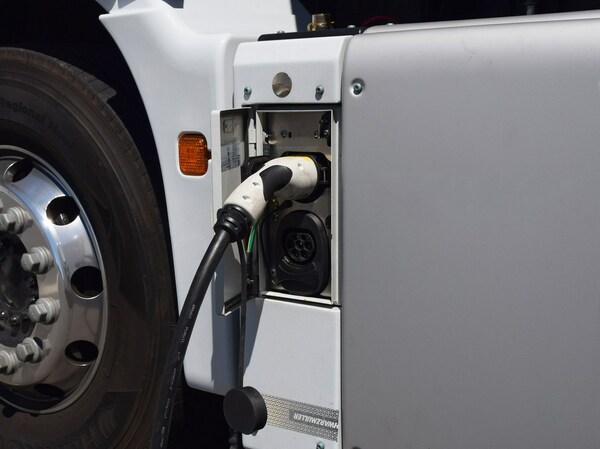The largest fleet EV charging system being implemented by Core Development Group

Among the clients are companies, municipalities, universities, automobile manufacturers and dealerships, and school districts for school bus electrification
Core Development Group, a leading clean energy company, is proud to announce recent EV charging accomplishments in building an electrified energy-transportation infrastructure network of the future, including implementing part of the largest EV fleet charging system in the Americas.
Core Development Group has been working for a large U.S. retailer to design, engineer, procure and construct six thousand large-scale level 2 (L2) and hundreds of level 3 (L3) fast-charge systems, equaling approximately 6,000 total EV charging stations. This network includes 250 EV chargers per installation location, across 23 large commercial & industrial locations in the United States.
One major challenge of this project is to equip utility-scale feeder equipment, which is not typically used for distribution centers or other commercial buildings. However, a typical commercial building may be able to accommodate the electrical load of approximately ten L2 chargers. Therefore, ramping up the install number to hundreds of EV chargers per location requires a great deal of experience, expertise, and coordination between all the project stakeholders.
To accomplish such large-scale EV charging installations, Core Development has been working closely with over 20 different local electric utility companies across 12 states to help power the electric fleet and support corporate goals such as reducing carbon emissions and implementing sustainability initiatives. EV charging installation locations span across the United States, with a wide geographic footprint from California to Massachusetts to Florida.
“Understanding the transition to EV charging and associated federal, state, and local utility incentives is critical to navigating an economically favorable path forward. These regulatory insights have allowed us to help many organizations transition to cleaner energy options and support corporate ESG-type objectives,” said Henry Cortes, CEO and Founder of Core Development Group. “Helping organizations convert standard fleet vehicles to electric vehicles (EVs) takes time, strategy, experience, and education.”
Core Development Group has been working with a diverse set of clients to help streamline the process of designing, evaluating, funding, and implementing organizational EV charging projects. Among the clients are companies, municipalities, universities, automobile manufacturers and dealerships, and school districts for school bus electrification.
Additionally, the Group has experience in electrifying EV charging solutions for various locations that include warehouses, parking garages, old or new surface employee parking lots, urban parking garages, corporate office parks, multi-level parking areas, and industrial trucking locations. The approach with each organization and specific property is unique and handled differently, explaining why diverse experience is so important with EV charging projects. And this is what makes Core Development Group stand out.
Demand for EV charging has grown significantly over the past decade thanks to heightened environmental concerns, greater availability of models, increased cost competitiveness with conventional gas vehicles, and improved vehicle ranges. These factors will continue to drive increased EV adoption over the next decade, with the wide availability of EV tax incentives and other government-organized support programs.
Some businesses struggle with the energy transition to EVs, but forward-thinking organizations recognize the energy transition is more of a commercial opportunity than a risk. Partnering with an experienced company like Core Development Group enables these businesses to achieve smooth, successful transitions.
Category: Driver Stuff, Electric Vehicles, Equipment, Featured, Fleet Maintenance, Fuel & Oil, General Update, Green, News, Shop Stuff, Tech Talk, Tools, Transit News










